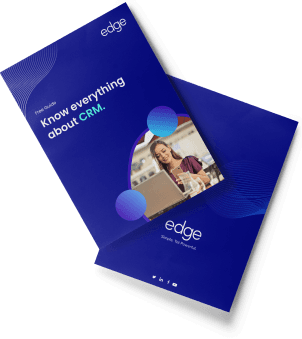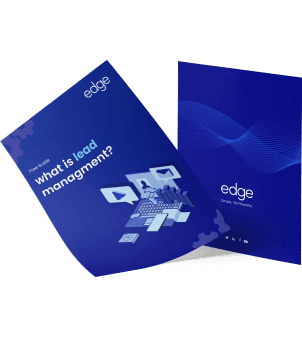Table of Contents
1. Introduction
2. What is CRM?
3. What is the role of CRM in business?
4. How do I use CRM in sales & marketing?
5. What is data collecting in CRM?
6. How do I choose the right CRM for small business in 2024
7. Best 10 CRM for Small Business in 2024
8. Conclusion
Introduction
Entrepreneurs juggle a variety of tasks regarding data collecting every day. They probably don’t know about CRM. These range from marketing and sales to customer assistance and retention. Managing these various components requires strong customer relationship management (CRM) technology. The technology serves as the organizational spinal column of CRM in sales & marketing.
Modern CRM systems offer advanced functionalities. They start from the simplicity of a contact list or a spreadsheet. These include transaction recording, sales tracking, and automated email sequences. They empower small businesses to use customer data collecting in CRM. This helps with lead management and increases sales. The primary role of CRM in sales & marketing is collecting all data and utilizing it in business.
This blog explains the role of CRMs designed for small business owners. As we navigate CRM, we'll shine a spotlight on CRM. We'll discuss its potential as the perfect solution for small businesses.
Here, we explain the ten best CRMs to improve your business and streamline your operations in 2024. But before we discuss the best CRM in 2024, let's clear some basic questions regarding CRM.
What is a CRM?
CRM stands for Customer Relationship Management. It is a technology and strategy that businesses use to manage and analyze customer interactions throughout the customer lifecycle. CRM systems help companies improve customer relationships, streamline processes, and increase profitability.
What is the role of CRM in business?
The role of CRM in business is multifaceted. It operates as a centralized hub for managing customer-related information, enabling companies to understand and cater to their customers' needs more effectively.
CRM systems assist in sales, marketing, and customer service by providing a comprehensive view of customer interactions, preferences, and behaviors. The essential functions include lead management, sales tracking, customer assistance, and retention strategies, all of which contribute to improving overall customer satisfaction and loyalty.
How do I use CRM in sales & marketing?
CRM in sales & marketing involves working with technology to streamline and optimize various processes. This includes maintaining a contact list, recording transactions, tracking sales, and implementing automated email sequences.
The system helps businesses manage leads effectively, target marketing efforts, and increase sales. By utilizing CRM in sales and marketing, companies can create personalized strategies, understand customer behaviors, and tailor their communication to improve engagement and conversion rates.
What is data collecting in CRM?
Data collecting in CRM refers to gathering and storing relevant information about customers and their interactions with the business. This data includes customer contact details, purchase history, preferences, and other information that can provide insights into their needs and behaviors.
Modern CRM systems use advanced functionalities to collect, organize, and analyze this data, allowing businesses to make informed decisions, enhance customer experiences, and drive business growth. Data gathering in CRM is fundamental to understanding customers and tailoring strategies to meet their expectations.
How do I choose the right CRM for small business in 2024
Choosing the best CRM system for your business in 2024 is a major decision. It requires thoughtful consideration. To simplify the selection process, consider asking the following key questions:
Define Your Goal:
Assess your business's pain points in customer communications.
Determine if your sales team struggles with lead tracking. If so, they need robust lead management features for a more efficient sales process.
If your challenge lies in email marketing follow-ups, prioritize CRM systems with excellent email templates. This will help you create impactful marketing campaigns.
User Compatibility:
Identify the users of the contact management software. Note their varying levels of technological proficiency within your team.
Ensure the selected CRM solution aligns with the tech-savviness of your employees. Strike a balance between functionality and ease of use.
Prioritize the health and efficiency of your workforce. Integrate a health roster. Provide necessary support.
Prioritize essential features:
Navigate through the multitude of CRM features. Focus on those essential to your business, particularly task management software capabilities.
Avoid overwhelming yourself with unnecessary functionalities. Concentrate on features that align with your specific needs.
Consider Your Budget:
Acknowledge the financial constraints of your small business. Establish a budget for CRM software.
View CRM expenditure as an investment. Aim to generate more revenue through enhanced functionalities than the amount spent on the system.
Explore various pricing plans. Understand the correlation between features and costs. Make an informed financial decision.
Read More: How to Choose the Right CRM Software for Your Business.
Refine your CRM system search. Make sure it aligns with business objectives, team dynamics, and features. Consider budget constraints. This maximizes CRM technology's potential for growth and success.
Best 10 CRM for Small Business of 2024
1. Freshsales:
Freshsales, a CRM solution from Freshworks, stands out among the array of digital marketing tools. It offers a versatile package catering to both small businesses and enterprises. It boasts a flexible pricing structure, starting at just $15 per month, making it accessible for businesses of varying sizes.
The platform presents users with the option of a free plan. It provides a cost-effective entry point for those exploring CRM solutions. Additionally, Freshsales extends a 21-day free trial. This allows users to experience all its features before committing.
Freshsales is accessible on both desktop and mobile devices. This ensures that users can manage their sales processes seamlessly, regardless of their location. The platform's user-friendly interface enhances the overall experience. It makes it easy to navigate and leverage its features effectively.
One notable feature of Freshsales is its integration capability with various email platforms. This integration facilitates smooth communication and collaboration within the platform. It enhances overall workflow efficiency.
Furthermore, Freshsales empowers businesses to capture valuable data from website visitors. This is done through customized forms. This proactive approach aids in lead generation. It also provides essential insights into audience behavior.
Key Features:
Automated Workflows:
Streamline your processes by automating tasks. These tasks include lead assignment and email communication. They also involve updating customer information and setting reminders, among other tasks. Behaviour-based sales sequences enable efficient and scalable outreach.
AI-Powered Contact Scoring:
Utilize Freddy AI to identify high-intent leads quickly. Understand customer behavior. Prioritize and personalize customer engagement based on advanced scoring insights.
Predictive Deal Insights:
Leverage AI-powered insights to identify and focus on the most promising deals within your sales pipeline. Optimize your sales strategy with predictive analytics.
2. HubSpot
HubSpot Sales Hub positions itself as powerful sales software. It's designed to help teams close more deals and strengthen customer relationships. It helps manage pipelines effectively on a connected platform. HubSpot provides a comprehensive solution for businesses of varying sizes. It has features such as sales automation, live chat, and efficient CPQ processes.
HubSpot is known for catering to both large companies and smaller businesses. It differentiates itself by offering a free plan. The free version isn't as feature-rich as paid plans. However, it includes essential CRM elements. This makes it an attractive option for those seeking a lightweight yet effective tool.
HubSpot's user-friendly dashboard ensures smooth navigation. This makes it accessible even for users new to CRM tools. While it may not offer the extensive customization of some competitors, its simplicity is a strong suit. This is especially true for those prioritizing ease of use.
Key Features:
Sales Automation:
Set up automated, personalized emails and follow-up tasks. Maintain a top-of-mind presence throughout the sales process. This enhances engagement and closing rates.
Live Chat:
Connect with website visitors in real-time. Convert leads, close deals, and provide immediate Customer service. This creates a more personalized experience.
Configure, Price, Quote (CPQ):
Generate quotes rapidly, allowing you to send timely proposals to close deals faster. Integration with e-signature ensures faster turnarounds in the quoting process.
3. Zendesk
Zendesk is an excellent CRM software choice for small businesses. It aims to enhance customer support and service. Zendesk Sell starts at $19 per user per month and is priced competitively. It provides a range of features to streamline your sales and support processes.
With Zendesk, businesses can comprehensively track each lead throughout their buying journey. This capability allows for a clear view of all interactions a customer has had with the brand. It facilitates better-informed decision-making and personalized engagement.
Zendesk serves as a repository for storing crucial customer information. This feature allows teams to access and stay up-to-date with customer support tickets, questions, and conversations. It ensures a seamless and informed customer service experience.
Zendesk empowers businesses to deliver personalized customer service. This happens at every stage of the sales pipeline. This personalized approach contributes to enhanced customer satisfaction and loyalty.
Zendesk Sell is a modern sales CRM. It offers productivity tools, advanced analytics, and a comprehensive customer view. The view spans from sales to service. This integrated approach ensures a cohesive experience for both sales and customer support teams.
Key Features:
Sales Engagement:
Built-in sales engagement tools enable the creation of lead lists and automate outreach. This streamlines the sales process.
Full Customer View:
Manage leads, contacts, and account information within a unified platform. This promotes efficient collaboration and customer management.
Pipeline Visibility:
Analyze lead and deal progression. Predict deal volume and forecast revenue growth for informed decision-making.
4. ZOHO
Ranked fourth among the best CRM software for small businesses. Zoho Bigin is a cloud-based platform. It provides robust sales solutions tailored to the unique needs of small businesses, startups, and teams.
Zoho Bigin stands out by offering a unified interface to connect with leads across different platforms. This CRM empowers users to automate repetitive sales tasks. Users can access detailed sales reports and effectively manage their sales pipeline. The platform streamlines
customer-facing operations, including marketing, sales, onboarding, delivery, and support.
Zoho Bigin seamlessly integrates with other Zoho tools. These tools include their sales, marketing, and project management suites. This interconnectedness enhances the overall efficiency of your business operations. It provides a holistic approach to managing various facets of your organization.
Key Features:
Industry Templates:
Customize your CRM using templates tailored for specific industries. Templates are available for software consulting, real estate, education, and more.
Pipeline Management:
Bigin incorporates connected team pipelines. It also has built-in task management. This facilitates a cohesive approach to managing your sales processes.
Automation:
Create intelligent workflows effortlessly with three easy steps. Set up automatic email alerts. Assign new contacts to your team automatically. This enhances overall efficiency.
5. edge CRM
Edge CRM stands as a testament to innovation and excellence in customer relationship management. Sales professionals uniquely conceived and perfected this platform. It is tailored to meet the diverse needs of businesses across different sizes and industries. Edge CRM is committed to customization, relationship building, and operational simplicity. This makes it a comprehensive solution for modern sales teams.
Edge CRM prides itself on being a completely customizable CRM. It's suitable for businesses of all sizes. The platform adapts to your unique requirements, whether you're a small local company or a growing enterprise. The platform's origin story adds to its credibility. Sales professionals designed, instigated, and perfected edge CRM. The product is a result of their industry insights. They have a deep understanding of the challenges faced by sales teams.
Efficiency is at the core of edge CRM. An AI-driven lead qualifier enhances the lead management process. This feature ensures that your sales team spends more time on high-priority leads. With a focus on accessibility and security, edge CRM utilizes cloud-based data collecting. This ensures that your data is secure. It also facilitates seamless access whenever and wherever you need it.
Key Features:
Actionable Reports:
With 256+ types of actionable reports, businesses can extract meaningful productivity. Business forecasting capabilities provide clear visibility into upcoming challenges.
Mobile-Based Application:
Mobile-based applications allow users to access comprehensive data on the go. Quick updates and real-time information contribute to agile decision-making.
Calendar Integration:
A fully comprehensive calendar facilitates smooth integration with contacts, meetings, calls, and opportunities. This centralized view enhances organizational efficiency.
6. Pipedrive
Pipedrive is a simple and effective CRM solution. It secures its place as the fifth-best option for small businesses. If your team seeks a hassle-free CRM with essential features, Pipedrive might be the optimal choice.
Pipedrive offers a clean and user-friendly interface. It makes it easy for teams to manage leads, contacts, and deals. There is no unnecessary complexity. The platform prioritizes simplicity in navigation and use. It ensures a smooth experience for users.
One of Pipedrive's notable features is the ability to create custom stages within your sales pipeline. This flexibility allows you and your team to manage deals in a way that aligns with your unique processes and preferences. It enhances overall efficiency.
Key Features:
Lead and Deal Management:
Gain a comprehensive overview of each lead and deal. Track pipeline progress, ownership, communications, and activity history for informed decision-making.
Contact Management:
Build an unlimited database of contacts. The database should have a clear view of their history, linked deals, activities, and communications for efficient customer relationship management.
AI Sales Assistant:
Receive intelligent suggestions based on a salesperson's past performance. Discover areas for improvement and receive guidance on what to focus on next.
7. Monday CRM
In 2024, Monday is the best CRM for small businesses. It stands out for its customizations in the sales cycle. This CRM platform offers a high level of flexibility. It allows you to customize your sales cycle according to your team's unique needs.
One of Monday's distinctive features is its ability to customize the sales cycle to align with your specific workflows. Edit deal stages. Manage multiple pipelines simultaneously on a single dashboard. Add as many columns and rows as needed. This provides unparalleled flexibility in managing sales processes.
Monday is a highly customizable CRM. It is adaptable to diverse business needs and suitable for multiple roles within an organization. The platform's flexibility allows you to tailor it to fit your business's unique requirements.
Key Features:
Centralized Communication:
Track all customer communications from a centralized location. Log any lead or contact-related activities, including calls, meetings, notes, and more. This is for comprehensive customer relationship management.
Performance Tracking:
Use dashboards, sales forecasting, and activity tracking to monitor your pipelines, targets, and team performance closely. This feature empowers data-driven decision-making for better outcomes.
Automation:
Streamline processes with automation features that handle notifications, lead assignments, and more. Use existing automation or create custom ones, to reduce manual workload and enhance efficiency.
8. Insightly
Insightly stands out as one of the best CRM options for Small and Medium-sized Businesses (SMBs). It's popular because of its many features. Let's explore the key aspects that make Insightly a notable choice for businesses.
Insightly follows a process-oriented approach. It allows teams to assign specific tasks to team members through to-do lists. Insightly's free plan is like HubSpot's, but it may lack some advanced features. For example, the free version may not have the data backup system found in the paid versions.
Insightly incorporates Business Intelligence (BI) capabilities. It provides users with the ability to discern trends across their data. This empowers businesses to make more informed decisions in their marketing efforts. They do this by leveraging insights gleaned from the CRM.
Insightly positions itself as a modern and affordable CRM solution. Its ease of use, customization options, and scalability make it a suitable choice for companies. They are looking to build and convert sales pipelines, increase productivity, and foster lasting customer relationships.
Key Features:
Sales Pipeline and Lead Management:
Capture relevant details about each lead. Prioritize leads with your teams. Distribute them based on predefined criteria. Teams gain real-time visibility into the status of each deal.
Lead Tracking and Opportunity Management:
Gain insights into what drives your business forward and identify potential risks. Manage opportunities within customizable pipelines tailored to your specific needs.
Process Automation:
Automate repetitive and manual tasks. This way, your team can focus on more critical aspects of their work. Automation features include email, reminders, onboarding stages, and more, contributing to faster scaling.
9. Salesforce
Salesforce is one of the best CRMs for small businesses. It offers a versatile platform optimized to cater to businesses of all sizes. Its specialized pricing for smaller business plans is especially appealing to both local companies and enterprises.
Salesforce's strength lies in its intuitiveness and high level of customization. The designers have designed the dashboard for easy navigation. Users have the flexibility to customize their dashboard setup according to their preferences. Additionally, the platform allows for the generation of custom reports. It provides valuable analytics insights.
Salesforce excels in integration capabilities, seamlessly connecting with other tools like Slack. This integration streamlines information sync and task scheduling, enhancing overall workflow efficiency.
Key Features:
Lightning Flow Automation:
Salesforce offers lightning-flow automation. It allows businesses to automate and manage any process with a point-and-click Process Builder tool. This feature contributes to increased efficiency and streamlined operations.
Lead Management:
Track, filter, and qualify new prospective customers with Salesforce's lead management capabilities. Hot leads can be routed to the appropriate representatives. This provides a systematic approach to lead handling. Users can also assess the impact of marketing activities on the sales pipeline.
Account and Contact Management:
Salesforce provides a comprehensive view of customers. It includes activity history, key contacts, customer communications, and internal account discussions. This holistic view facilitates effective customer relationship management.
10. Nutshell
Nutshell offers a comprehensive and all-in-one CRM solution. This eliminates the need for businesses to invest in multiple platforms. Nutshell has a user-friendly and hassle-free interface. It equips small to medium-sized businesses with powerful features to drive successful conversions.
Track leads and forecast sales with Nutshell's reporting and analytics feature. Monitor lead progression through the sales funnel. This allows you to make informed adjustments to meet your targets. Foster collaboration among team members with Nutshell's collaboration tools. Tag team members for input or assistance regarding customer concerns. This will break down departmental silos.
Nutshell provides a comprehensive CRM solution. It covers contact management, sales automation, pipeline management, reporting, analytics, and collaboration tools. The platform offers a user-friendly interface. It ensures easy navigation and accessibility for all users. Nutshell's mobile app facilitates data upload through business card photo capture. It promotes flexibility and on-the-go functionality.
Key Features:
Contact Management:
Reduce manual data entry with Nutshell's efficient contact management features. Easily import lead and customer data to Nutshell, streamlining the data transfer process. The mobile app allows you to upload customer data by simply taking a photo of a business card.
Sales Automation:
Nutshell automates the updating of prospect lead confidence, saving time for your sales team. Set up email drip sequences to streamline the email creation process. This enhances communication efficiency.
Pipeline Management:
Gain insights into your leads and customers' locations with the map view. It provides a bird's eye view of your business landscape.
Conclusion
Businesses have various systems and management, but we will find out the top 10 CRM for small businesses in 2024. We did some research. We put together a list of the top 10 Customer Relationship Management (CRM) tools for small businesses in 2024. We based this list on our experiences from the previous year and the popularity of these tools.
This list helps you better understand the options to improve your business. We hope this list helps you to find the best CRM for your business with the right management set and requirements.













